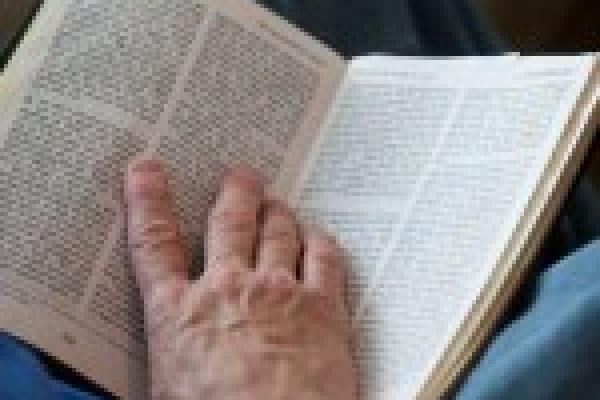It is a tradition in American journalism as predictable as Easter and Christmas itself: a cover story purporting to reveal the true story behind the Bible we thought we knew. Newsweek — now in its digital-only form — offers the latest entry in this genre with “The Bible: So Misunderstood It’s a Sin,” written by Vanity Fair contributing editor Kurt Eichenwald.
Eichenwald seeks to demonstrate that the Bible is “loaded with contradictions and translation errors and wasn’t written by witnesses and includes words added by unknown scribes to inject Church orthodoxy.” Eichenwald insists his article is not an attack on the Bible or Christianity. Rather, Eichenwald wants to rescue the message of Jesus from “God’s frauds,” those manipulative fundamentalists who don’t read or understand their Bibles but abusively twist it in order to create misery for others.
Even with a generous 8,487 words, Eichenwald reveals he is out of his depth for this subject matter. Though he doggedly advances his predetermined thesis from a mishmash of angles, experts quickly showed online that Eichenwald has not really done his historical homework or read his Bible carefully.
Daniel Wallace, founder and executive director of the Center for the Study of New Testament Manuscripts, demonstrated Eichenwald’s “numerous factual errors and misleading statements, his lack of concern for any semblance of objectivity, his apparent disdain for and lack of interaction with genuine evangelical scholarship, and his uber-confidence about more than a few suspect viewpoints.”
Michael Kruger, an expert in early Christianity and co-editor of “The Early Text of the New Testament,” lamented Eichenwald’s “jaw-dropping ignorance of the facts about the Bible.” Kruger showed that Eichenwald’s article “is short on the facts, it has little understanding of interpretive principles, it assumes that it knows more about theology than it really does, and it pours out scorn and contempt on the average believer.”
Despite this cool reception, Eichenwald might be surprised to learn that academically informed evangelicals agree with him on a number of issues. Yes, the Bible needs to be read more and to be read better, even among the faithful — and yes, the Bible can be abused and misused. Yes, people in the pew should learn the basics of historical background, interpretive principles, manuscript transmission, the formation of the canon and translation theory. They would also give a hearty “amen” to Eichenwald’s statement that “the history, complexities and actual words of the Bible can’t be ignored just to line it up with what people want to believe, based simply on what friends and family and ministers tell them.”
The problem, they would humbly suggest, is that Eichenwald has not truly taken his own advice to heart. His piece reads like someone trying to describe the landscape of North America after a first-time visit to just one city. The world of biblical scholarship and the people of evangelicalism are far more interesting than the narrow splice of popular liberal scholarship that Eichenwald has reviewed or the Republican politicians he has seen praying on TV.
I had to learn the same lesson myself, though my own spiritual and intellectual journey went in a different direction than the one Eichenwald endorses. I was reared in a mainline Protestant denomination but had little reason to doubt the historicity and veracity of the Bible until I became a religion major at a state university in the Midwest. There, while studying the Bible, comparative religion and philosophy from professors trained at Harvard and the University of Chicago, the cognitive — not to mention spiritual — dissonance between the faith of my youth and the assured results of biblical scholarship became almost unbearable.
But, over time, several things changed. I was involved in a community of people who had been changed by the gospel and were humbled by grace. They loved me, weren’t afraid of my questions, and gently challenged my assumptions. And then I discovered something that Eichenwald has apparently not yet learned: There is a robust and thriving world of biblical, theological and historical scholars who have studied and taught at the world’s leading universities and have become even more convinced, not less, about the historical reliability and integrity of the Bible and its faithful transmission to today.
Good reporting on religion does not require one to be religious, nor even to be an expert on the religion. But it does take a healthy dose of humility to admit one’s own ignorance and prejudices, to get outside the walls of one’s own narrow community and to pursue truth wherever it leads.
Newsweek’s piece affords the church the opportunity to clarify what it believes and to learn what it does not yet know. At the same time, the response to this cover story also offers Eichenwald the chance to slow down, step back and discover a world he never knew existed.
If Eichenwald wants to engage his subject matter with the true intellectual curiosity it deserves, he may discover that he has a far more interesting story to report next Christmas.
Justin Taylor is a doctoral candidate at the Southern Baptist Theological Seminary and is publisher for books at Crossway. He runs the blog Between Two Worlds, hosted by the Gospel Coalition. With Andreas Kostenberger, he is co-author of “The Final Days of Jesus.” You can find him on Twitter at @BetweenTwoWorlds. Via RNS.
Got something to say about what you're reading? We value your feedback!
